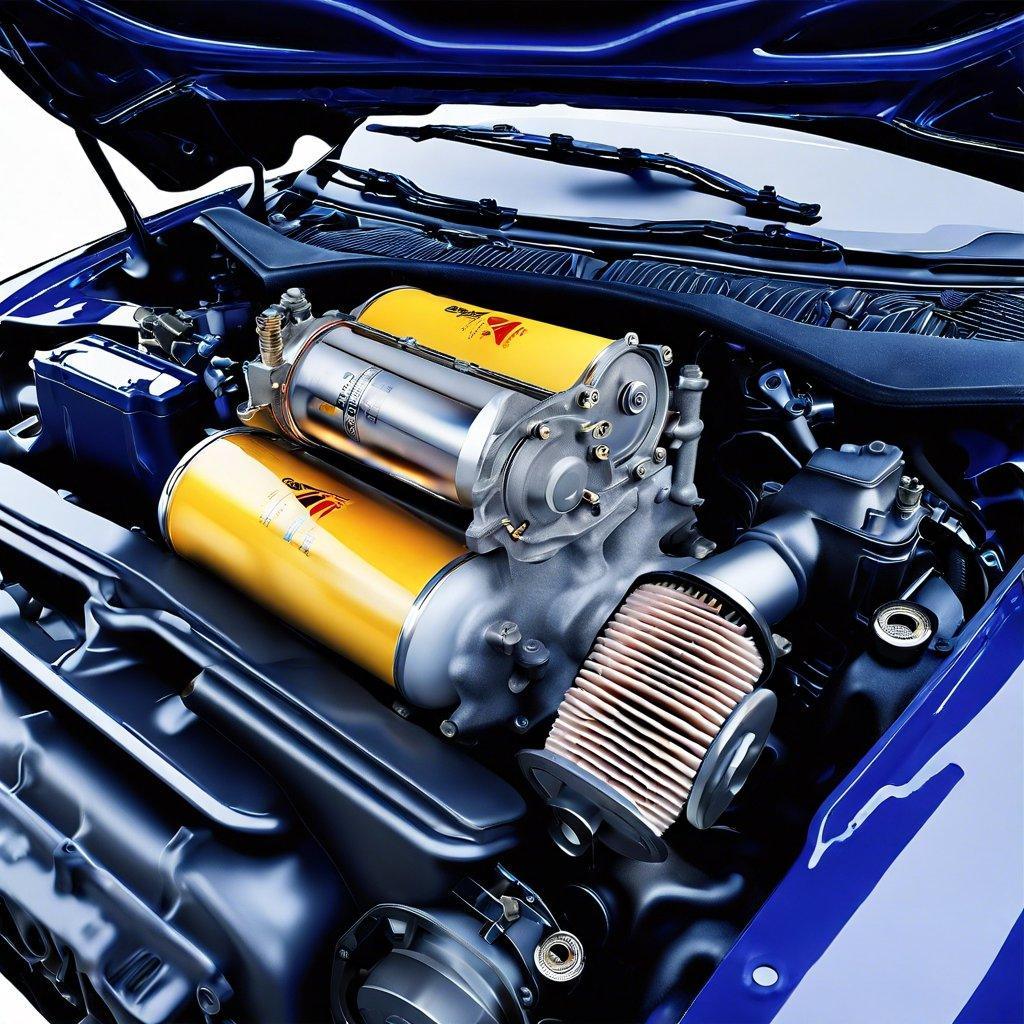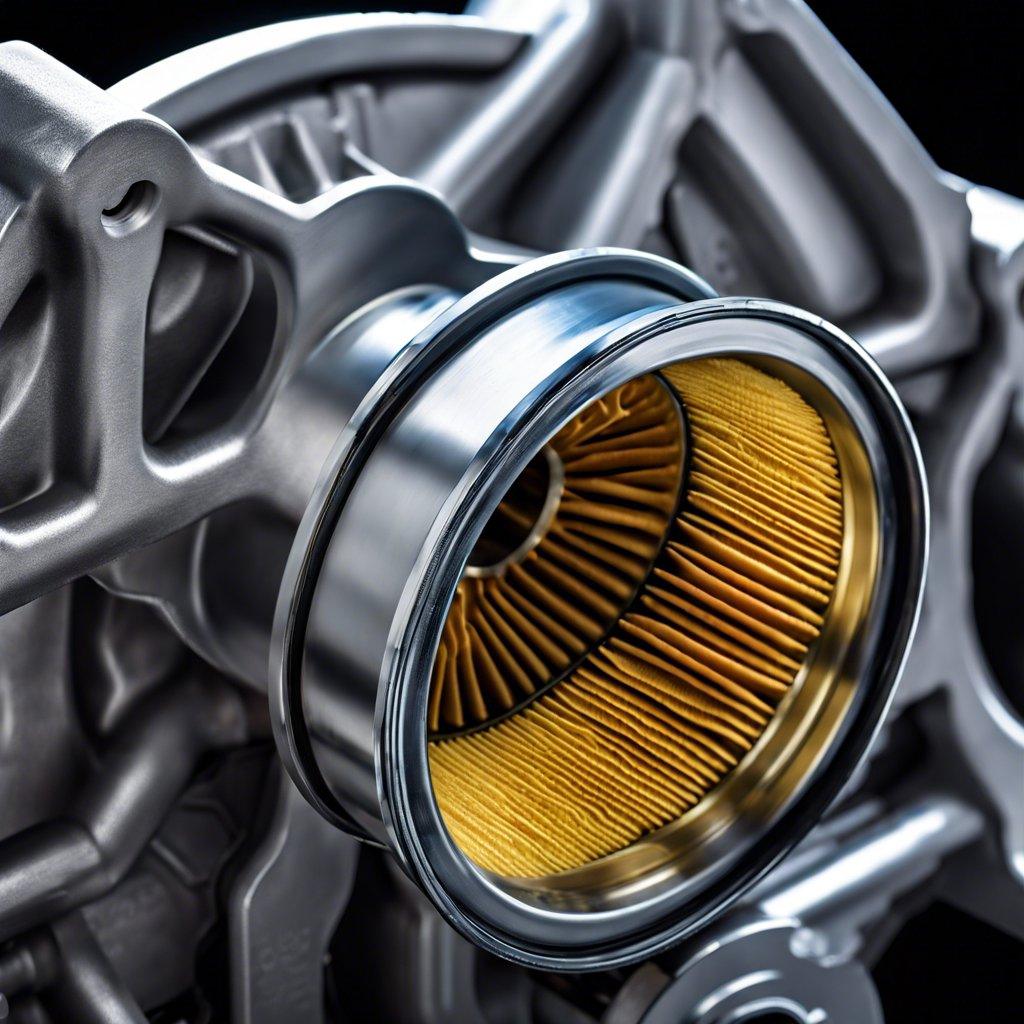Fuel Filter Issues: Symptoms and Solutions
Fuel Filter Malfunctions: Recognizing the Red Flags

As an engineering or technology employee, it’s essential to be aware of the common issues that can arise with fuel filters and the associated symptoms. Recognizing these red flags can help you diagnose and address fuel filter problems promptly, ensuring the smooth and efficient operation of your equipment or vehicles.
Symptoms of Fuel Filter Malfunctions
Decreased Fuel Efficiency: A clogged or malfunctioning fuel filter can restrict the flow of fuel, leading to a decrease in fuel efficiency and reduced engine performance.
Symptoms include:
- Decreased acceleration
- Reduced top speed
- Increased fuel consumption
Difficulty Starting the Engine: A faulty fuel filter can prevent the engine from receiving the necessary fuel, making it difficult or even impossible to start the engine.
Symptoms include:
- Slow or delayed engine cranking
- Engine stalling or misfiring during startup
Inconsistent Engine Performance: A malfunctioning fuel filter can cause fluctuations in fuel delivery, leading to inconsistent engine performance, such as hesitation, surging, or stalling.
Symptoms include:
- Intermittent engine hesitation or surging
- Rough idling or stalling
Identifying the Root Cause
To determine if the fuel filter is the root cause of the issues, it’s essential to conduct a thorough inspection and diagnosis. This may involve checking the filter’s physical condition, testing the fuel pressure, and analyzing any error codes or diagnostic information from the vehicle’s or equipment’s computer systems.
Addressing Fuel Filter Malfunctions
Once the fuel filter issue has been identified, the appropriate solution should be implemented. This may involve replacing the fuel filter, cleaning the fuel system, or addressing any underlying issues that may have contributed to the filter’s malfunction.
By being proactive and addressing fuel filter issues promptly, you can help ensure the reliable and efficient operation of your equipment or vehicles, ultimately improving productivity and reducing downtime.
Troubleshooting Fuel Filter Failures: A Comprehensive Guide
Understanding Fuel Filter Failures
Fuel filters play a crucial role in ensuring the efficient and reliable operation of any internal combustion engine. However, these essential components can sometimes fail, leading to a range of issues that can impact the overall performance and health of the engine. Understanding the common symptoms and underlying causes of fuel filter failures is the first step in effectively troubleshooting and resolving these problems.
Common Symptoms of Fuel Filter Failure
- Reduced Fuel Pressure: A clogged or blocked fuel filter can restrict the flow of fuel, resulting in a noticeable drop in fuel pressure. This can lead to poor engine performance, reduced power output, and difficulty starting the engine.
- Decreased Fuel Economy: As the fuel filter becomes increasingly obstructed, the engine has to work harder to draw the required fuel, leading to a decrease in fuel efficiency and higher fuel consumption.
- Engine Misfiring: Fuel filter problems can cause uneven fuel delivery, resulting in engine misfiring, hesitation, or stalling.
- Difficulty Starting: A heavily clogged fuel filter can restrict the flow of fuel to the engine, making it difficult or even impossible to start the vehicle.
Causes of Fuel Filter Failures
Fuel filter failures can be attributed to a variety of factors, including:
- Accumulation of Debris and Contaminants: Over time, the fuel filter can become clogged with dirt, rust, and other impurities present in the fuel system.
- Fuel Contamination: Exposure to water, dirt, or other foreign substances in the fuel can lead to the premature clogging of the fuel filter.
- Exceeding the Recommended Service Interval: Failing to replace the fuel filter at the manufacturer’s recommended interval can result in filter degradation and failure.
- Mechanical Damage: Physical damage to the fuel filter, such as cracks or punctures, can compromise its functionality and lead to leaks or blockages.
Fuel Filter Replacement and Maintenance
To ensure the optimal performance and longevity of your fuel system, it is essential to follow the manufacturer’s recommended fuel filter replacement schedule. Regularly inspecting the fuel filter for any signs of wear or damage and replacing it as needed can help prevent costly engine repairs and downtime.
| Fuel Filter Replacement Interval | Recommended Frequency |
|---|---|
| Gasoline Engines | Every 30,000 to 50,000 miles or 24 to 36 months |
| Diesel Engines | Every 10,000 to 15,000 miles or 12 to 18 months |
By understanding the common symptoms, underlying causes, and best practices for fuel filter maintenance, you can effectively troubleshoot and address fuel filter-related issues, ensuring the optimal performance and longevity of your engine.
Fuel Filter Woes: Unveiling the Underlying Causes
Fuel Filter Failure: The Domino Effect
The fuel filter plays a crucial role in maintaining the efficiency and performance of your vehicle’s engine. When this unassuming component fails, it can trigger a chain reaction of issues that can be both frustrating and costly. From decreased fuel efficiency to engine misfiring, understanding the underlying causes of fuel filter problems is essential for engineering and technology professionals tasked with maintaining and troubleshooting vehicle systems.
Contaminated Fuel: The Root of the Problem
One of the primary culprits behind fuel filter failures is the presence of contaminants in the fuel itself. Dirt, debris, and water can accumulate in the fuel tank, eventually making their way to the fuel filter. As the filter becomes clogged, it restricts the flow of fuel, leading to a host of problems.
Symptoms of a Failing Fuel Filter
- Reduced Fuel Efficiency: A clogged fuel filter forces the engine to work harder, resulting in decreased fuel economy.
- Engine Misfiring or Stalling: Insufficient fuel flow can cause the engine to misfire or stall, especially during acceleration or under heavy load.
- Difficulty Starting the Vehicle: A blocked fuel filter can make it challenging to start the engine, as the fuel cannot reach the combustion chambers effectively.
- Increased Fuel Pump Wear: The fuel pump must work harder to overcome the resistance caused by a clogged filter, leading to premature wear and potential failure.
Preventive Maintenance: The Key to Fuel Filter Longevity
Regularly replacing the fuel filter as per the manufacturer’s recommendations is crucial to maintaining the overall health of your vehicle’s fuel system. This proactive approach can help you avoid the costly consequences of a failed fuel filter, ensuring optimal engine performance and fuel efficiency.
| Fuel Filter Replacement Interval | Typical Mileage |
|---|---|
| Gasoline Engines | 30,000 – 50,000 miles |
| Diesel Engines | 10,000 – 15,000 miles |
By understanding the underlying causes of fuel filter issues and adhering to a proactive maintenance schedule, engineering and technology professionals can help ensure the reliable and efficient operation of their vehicle’s fuel system.
Fuel Filter Replacement: Restoring Optimal Engine Performance
Importance of Regular Fuel Filter Replacement
The fuel filter plays a crucial role in maintaining the optimal performance and longevity of an engine. Over time, this essential component can become clogged with contaminants, restricting the flow of fuel and compromising engine efficiency. Timely replacement of the fuel filter is, therefore, a critical maintenance task that can significantly improve engine performance, fuel economy, and overall vehicle reliability.
Symptoms of a Clogged Fuel Filter
Identifying the signs of a clogged fuel filter is the first step in addressing this issue. Common symptoms include:
- Reduced engine power and acceleration
- Difficulty starting the engine
- Increased fuel consumption
- Stalling or hesitation during idling or acceleration
Fuel Filter Replacement Procedure
Replacing a fuel filter is a straightforward process that can be performed by a skilled technician or a knowledgeable vehicle owner. The typical steps involved are:
- Locate the fuel filter, typically situated along the fuel line, near the fuel tank or engine.
- Safely depressurize the fuel system by running the engine until it stalls or by disconnecting the fuel pump fuse.
- Disconnect the fuel lines from the old filter and remove it from the vehicle.
- Install the new fuel filter, ensuring the flow direction matches the arrow on the filter.
- Reconnect the fuel lines and restore power to the fuel system.
- Start the engine and check for any leaks around the new fuel filter.
Maintaining Optimal Engine Performance
Regular fuel filter replacement is a crucial step in maintaining the optimal performance and longevity of your engine. By addressing this important maintenance task, you can enjoy improved fuel economy, reduced emissions, and a smoother, more responsive driving experience.
| Fuel Filter Replacement Interval | Recommended Mileage |
|---|---|
| Light-Duty Vehicles | 30,000 – 50,000 miles |
| Heavy-Duty Vehicles | 20,000 – 30,000 miles |
Remember to consult your vehicle’s owner’s manual for the manufacturer’s recommended fuel filter replacement interval, as this may vary based on your specific make and model.




Post Comment